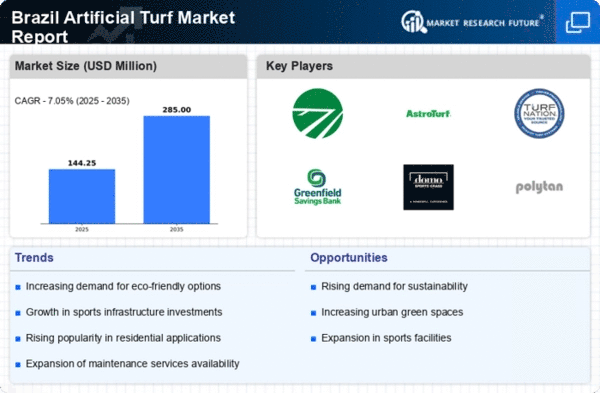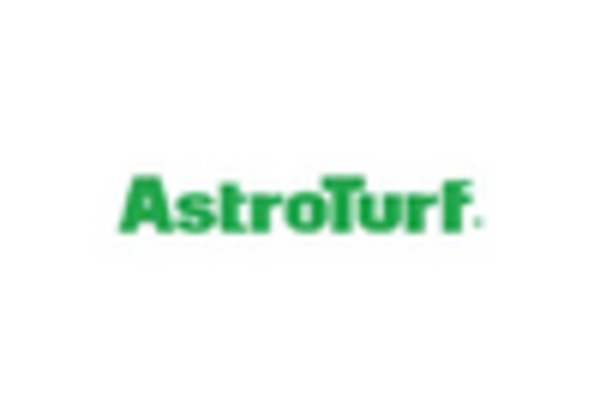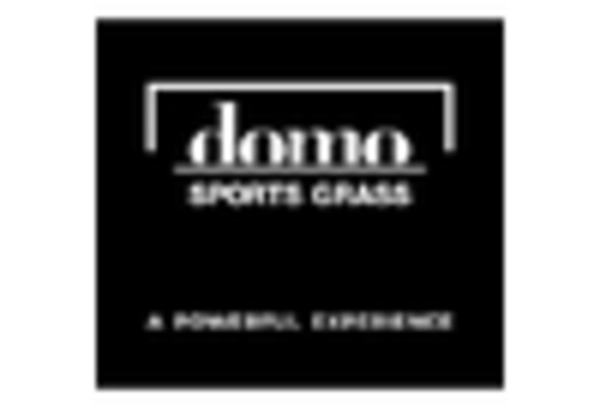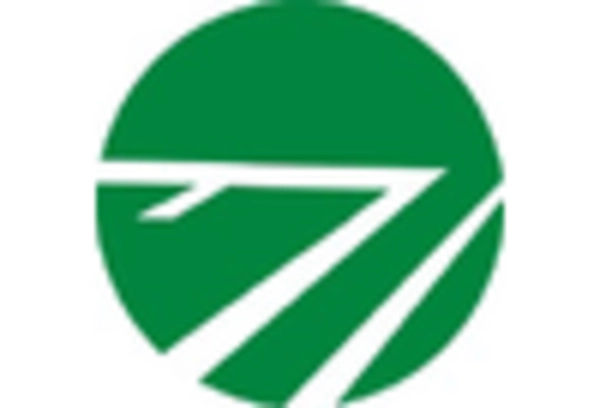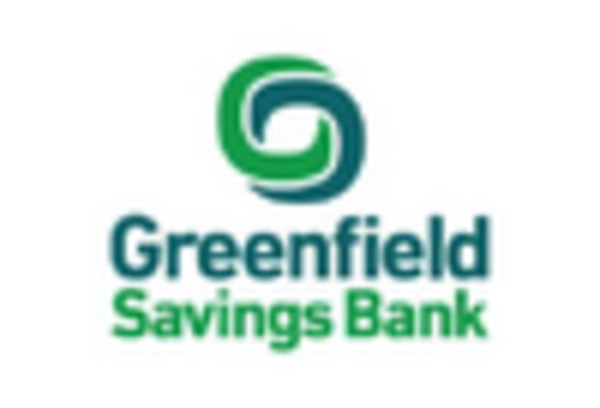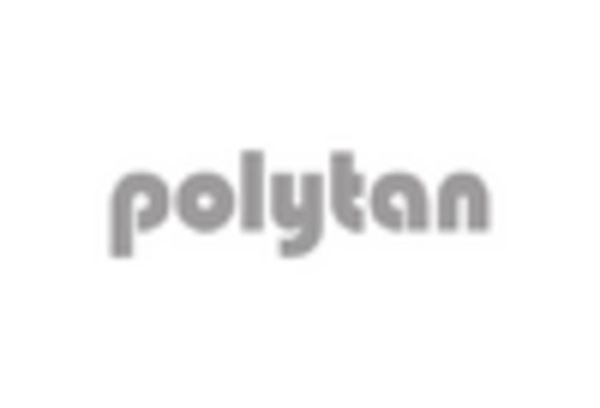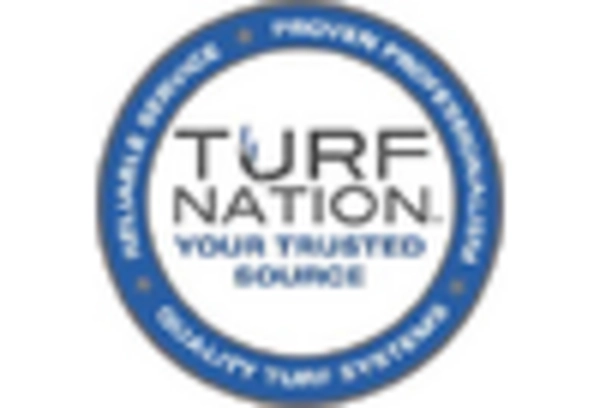Urbanization and Land Scarcity
Brazil's rapid urbanization presents both challenges and opportunities for the artificial turf market. As cities expand and available land diminishes, the need for versatile and space-efficient solutions becomes critical. Artificial turf offers an attractive alternative for urban landscaping, parks, and recreational areas, allowing for green spaces in densely populated regions. The artificial turf market is likely to capitalize on this trend, as urban planners and developers seek to create aesthetically pleasing environments without the extensive maintenance associated with natural grass. Market data suggests that urban areas are increasingly adopting artificial turf for public parks and private gardens, which could lead to a substantial increase in market demand over the next few years.
Rising Awareness of Health and Fitness
The artificial turf market in Brazil is benefiting from a growing awareness of health and fitness among the population. As more individuals engage in sports and outdoor activities, the demand for safe and high-quality playing surfaces increases. This trend is particularly evident in schools and community centers, where artificial turf is being installed to provide safe environments for children and athletes. The artificial turf market is likely to see a boost in sales as educational institutions and local governments prioritize the health benefits of sports participation. Market analysis indicates that investments in artificial turf for educational and recreational facilities could rise significantly, reflecting a broader societal shift towards promoting active lifestyles.
Environmental Regulations and Standards
In Brazil, the artificial turf market is influenced by stringent environmental regulations aimed at promoting sustainable practices. The government has implemented policies that encourage the use of eco-friendly materials in construction and landscaping. As a result, manufacturers in the artificial turf market are increasingly focusing on producing products that comply with these regulations. This shift not only enhances the market's appeal to environmentally conscious consumers but also aligns with the global trend towards sustainability. The artificial turf market is likely to see a rise in demand for products made from recycled materials, which could account for a significant portion of the market share in the coming years. This regulatory environment fosters innovation and drives companies to develop greener alternatives, thereby expanding their customer base.
Increasing Demand for Sports Facilities
The artificial turf market in Brazil experiences a notable surge in demand due to the increasing investment in sports facilities. As municipalities and private entities allocate funds for the development of sports complexes, the need for durable and low-maintenance surfaces becomes apparent. The Brazilian government has been promoting sports as a means of social inclusion, leading to a rise in the construction of multi-sport facilities. This trend is reflected in the market data, which indicates that the artificial turf market is projected to grow at a CAGR of approximately 8% over the next five years. The artificial turf market is thus poised to benefit from this growing infrastructure development, as more facilities require high-quality turf solutions to meet the needs of athletes and recreational users alike.
Technological Innovations in Turf Production
Technological advancements in the production of artificial turf are reshaping the market landscape in Brazil. Innovations such as improved manufacturing processes and the development of advanced materials enhance the durability and performance of artificial turf products. These advancements not only improve the quality of the turf but also reduce production costs, making it more accessible to a wider range of consumers. The artificial turf market is likely to benefit from these innovations, as they enable manufacturers to offer a diverse array of products tailored to specific applications, from sports fields to residential landscaping. As technology continues to evolve, the market may witness an influx of new products that meet the varying demands of consumers, further driving growth.


